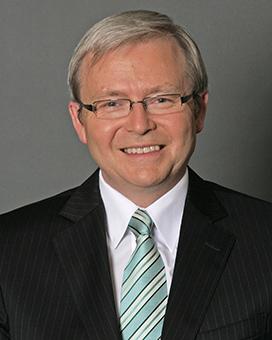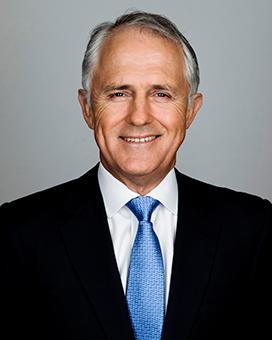On this page
1990 to 1999
3 Oct 1998: 1st elected to Federal Parliament
Gillard was elected as Member of Parliament for the seat of Lalor (Vic.), in the 39th federal election.
2000 to 2009
3 Dec 2007: Deputy Prime Minister
Gillard was appointed as Australia’s 1st female Deputy Prime Minister and was sworn in as Minister for Education, Minister for Employment and Workplace Relations, and Minister for Social Inclusion.
2010 to 2019
24 Jun 2010: 27th Prime Minister
Prime Minister Rudd faced increasing criticism from within the government. Gillard requested that a leadership ballot be held. Rudd stood down upon realising that he did not have the support to win. Gillard was elected unopposed as leader of the Australian Labor Party and sworn in as Australia’s 1st female prime minister.
21 Aug 2010: 43rd federal election
After the closest election result since 1961 produces a hung Parliament, intense negotiations enable Labor to form a minority government with the support of 4 cross-bench members.
2 Oct 2010: Visit to Afghanistan
Gillard’s 1st foreign trip as Prime Minister allowed her to meet members of the Australian Defence Force in Tarinkot and President Hamid Karzai in Kabul, resulting in an agreement for Australian soldiers to remain in Afghanistan.
14 Oct 2010: Australian saint
Pope Benedict XVI of the Catholic Church conducts the ceremony of canonisation of Australia's 1st saint, Mary MacKillop.
15 Dec 2010: Refugee tragedy
A boat loaded with refugees sinks off Christmas Island, killing 48 people aboard. The tragedy provoked criticism of the Gillard government’s refugee policy.
7 Jan 2011: Extreme weather in Australia
Cyclones Yasi and Carlos, a flash flood through the centre of Toowoomba, Queensland, and devastating floods in Queensland, Victoria and Western Australia, contributed to a 1.2% economic slump for the quarter, the biggest fall in 20 years.
24 Feb 2011: Carbon pricing scheme
To combat climate change, Gillard announced a plan to legislate for the introduction of a fixed price to be imposed on carbon pollution from 1 July 2012. The Clean Energy Act 2011 was enacted on 18 November.
22 Mar 2011: Flood levy
Disastrous floods in the eastern states in 2010-11 led to the Gillard government’s 'flood levy', a one-off tax on incomes over $50,000 designed to assist with reconstruction in the wake of the floods.
7 May 2011: Asylum seeker negotiations with Malaysia
Gillard announced that Australia and Malaysia were negotiating an agreement to transfer asylum seekers who arrived in Australia by boat to Malaysia. However, the High Court ruled the arrangement unlawful on 31 August. In October, Gillard conceded that the government would revert to onshore processing of asylum seekers who arrive by boat.
6 Jul 2011: Tobacco plain packaging
As a measure to deter Australians from smoking, the Tobacco Plain Packaging Bill 2011 was introduced to the House of Representatives. From 1 December 2012, in a world-first reform, the legislation reduced the attractiveness of cigarette packaging and made health warnings more salient.
9 Oct 2012: Sexism and misogyny speech
Gillard gave her renowned ‘Misogyny Speech’ in the House of Representatives, sparking considerable debate about the treatment of women in politics and in the broader Australian community.
12 Nov 2012: Child abuse Royal Commission
Gillard announced the decision to establish the Royal Commission into Institutional Responses to Child Sexual Abuse, to investigate the responses of religious, state and community groups to acts and allegations of child sexual abuse.
21 Mar 2013: Forced adoption apology
On behalf of the government, Gillard apologised to people affected by forced adoption or removal policies and practices. The national apology was delivered in the Great Hall of Parliament House, Canberra.
14 Apr 2013: ‘Gonski’ Education reforms
The Gillard government announced a package of education funding reform proposed by the Review of Funding for Schooling (the ‘Gonski’ review) in 2011. These reforms were enacted by the Australian Education Act 2013, which passed the Senate on 27 June.
1 Jul 2013: National Disability Insurance Scheme (NDIS)
In response to growing community awareness of a need for major reform of disability services, the Gillard government established the NDIS in March 2013. The scheme aims to offer individualised support for people with permanent and significant disability, their families and carers.
27 Jun 2013: Resignation
Gillard’s prime ministership was marked by conflict within the Labor Party and speculation about her leadership. On 26 June, she announced a leadership ballot in which she was defeated by Kevin Rudd. She resigned as prime minister the next day.
5 Aug 2013: Left Parliament
Before the leadership ballot, Gillard had announced she would retire from politics if she were defeated. In keeping with this pledge, she did not seek re-election in September 2013. Her parliamentary service ended when Parliament was dissolved on 5 August.





